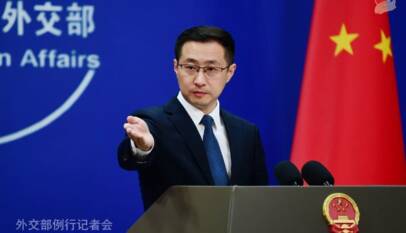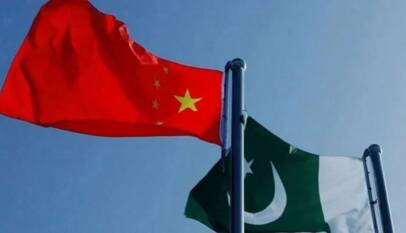Time for Pakistan to learn from Chinese experience in Xinjiang: Jan Achakzai
Jan Achakzai, a geopolitical analyst and a politician from Balochistan has appreciated the model of governance and development in Xinjiang and called for replicating the same model in the neglected areas of Pakistan. He debunked the propaganda of western media in regard to Xinjiang and said that the world needs to see China from an objective lens. He suggested that tourism can uplift the economy of Balochistan just like it did in Xinjiang. Moreover, he lauded Chinese practices in infrastructure development, energy self-sufficiency, and human development.
ISLAMABAD, Oct. 11 – Pakistan highly appreciates China for its consistent policy carrying out repaid development and promoting social stability in Xinjiang region, Gwadar Pro reported on Sunday quoting senior officials.
Pakistan believes its Iron Brother China has brought Xinjiang at par with its other regions in contrast to the western countries propaganda.
China’s development strategy towards Xinjiang is highly successful. “If someone visits Xinjiang, he will see it is not behind China’s major cities. The Chinese government and people live like one unit and as one nation.
Islamabad is happy with the development of the region that was once under-developed. “In fact we are learning from them (China) to develop our neglected areas. Xinjiang is an example (of fast development),” the officials added.
Some countries were raising Xinjiang and Hong Kong issues just to demonstrate animosity towards China. “This propaganda won’t work. China has developed fast and is carrying each of its region with the major cities. Pakistan is convinced (that) China is the future of the world,” they argued, citing Prime Minister Imran Khan’s policy.
Overall statistics show that China’s Xinjiang Uygur Autonomous Region has seen a positive trend in economic development and people’s livelihoods have significantly improved.
Noting that development is an important foundation for lasting peace and stability in Xinjiang, Chinese President Xi Jinping recently at the third central symposium on work related to Xinjiang underlined the need to fully and faithfully implement the CPC’s policies on governing Xinjiang for the new era.
Xi demanded law-based governance and long-term efforts to develop Xinjiang into a region that is united, harmonious, prosperous, and culturally advanced, with healthy ecosystems and people living and working in contentment.
Xinjiang’s Gross Domestic Product (GDP) has increased from less than $147 billion in 2014 to $205 billion by 2019, with an average yearly increase of 7.2 percent.
In mid-September, China’s State Council Information Office published a white paper titled “Employment and Labor Rights in Xinjiang”, which said that through proactive labour and employment policies, Xinjiang had continuously improved people’s lives and guaranteed and developed their human rights in every field.
Jan Achakzai, a geopolitical analyst and a politician from Balochistan, said western media will hardly report great strides of China’s success in development, grass root transformation and poverty alleviation of its once most underdeveloped Xinjiang.
“China has done marvels over the last decades by reducing poverty lifting over 100 million people out of misery. The governance has delivered in terms of creating an enabling environment through special focus on infrastructure development, energy self-sufficiency, and human development. And it matters for Pakistan,” he said.
He added, “For Pakistan, particularly Balochistan, the Chinese success in poverty alleviation and improving under developed areas is a role model.
Being the poorest of Pakistan’s provinces, Balochistan’s poverty level, according to UNDP estimates, is around 70%. As Islamabad is prioritizing fundamental pillars of the economic take off, investment in infrastructure, energy and human development, a development-led governance model should be adopted in smaller provinces like Balochistan.”
He said another field where Pakistan can learn from the Chinese experience in Xinjiang was tourism promotion. “Tourism could be lucrative for Balochistan as it boasts best places to attract tourists from the world. China has particularly focused on this sector in Xinjiang.
According to one statistic, more than 100 million tourists spent around ¥182 billion ($ 26 billion) last year in the region, boosting per capita income massively,” he remarked.
CPEC’s Success Story: $25 Billion Invested Across 38 Completed Projects
ISLAMABAD: A total of 38 projects worth over $25 billion have been completed and 23 develo…












